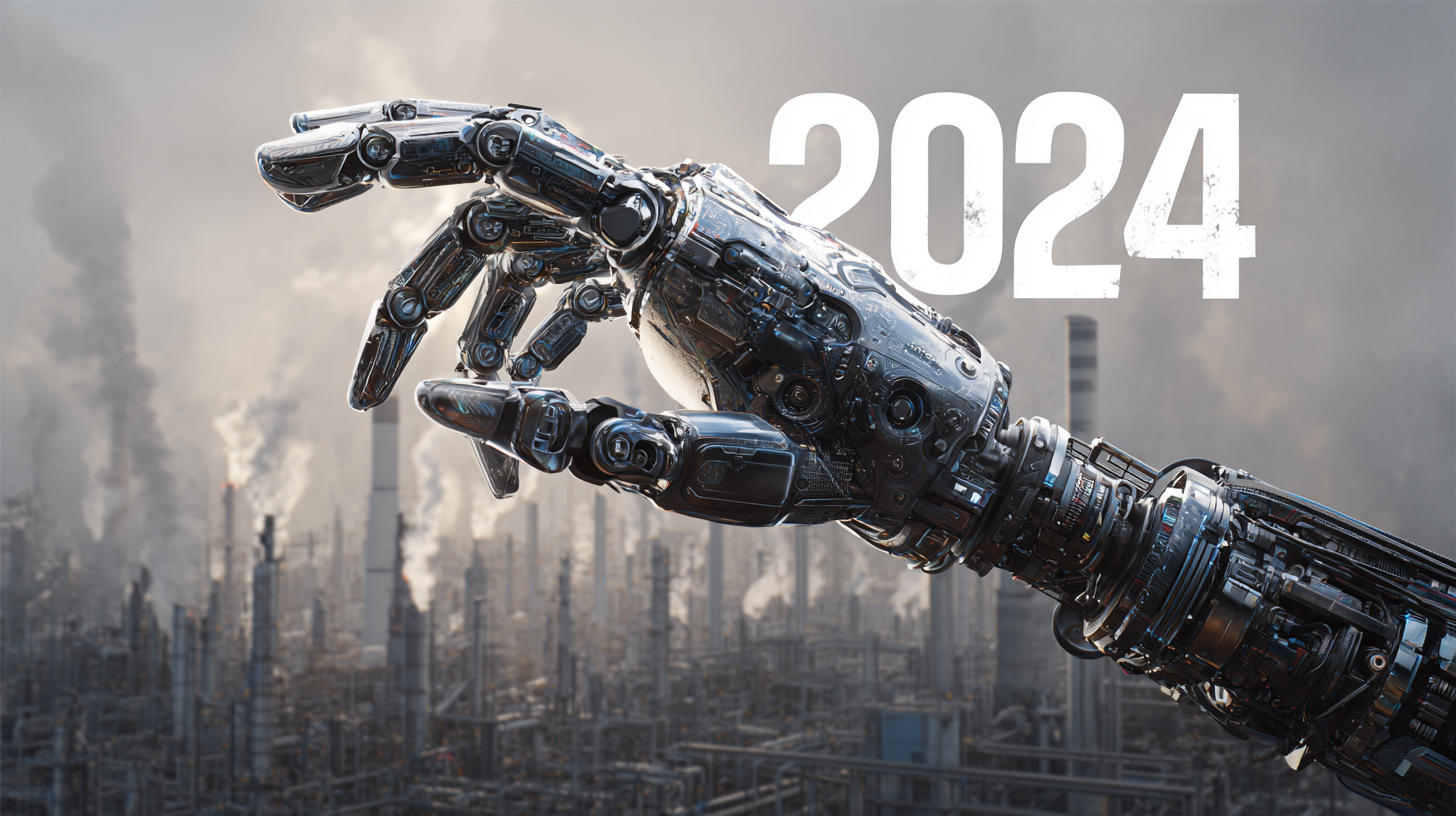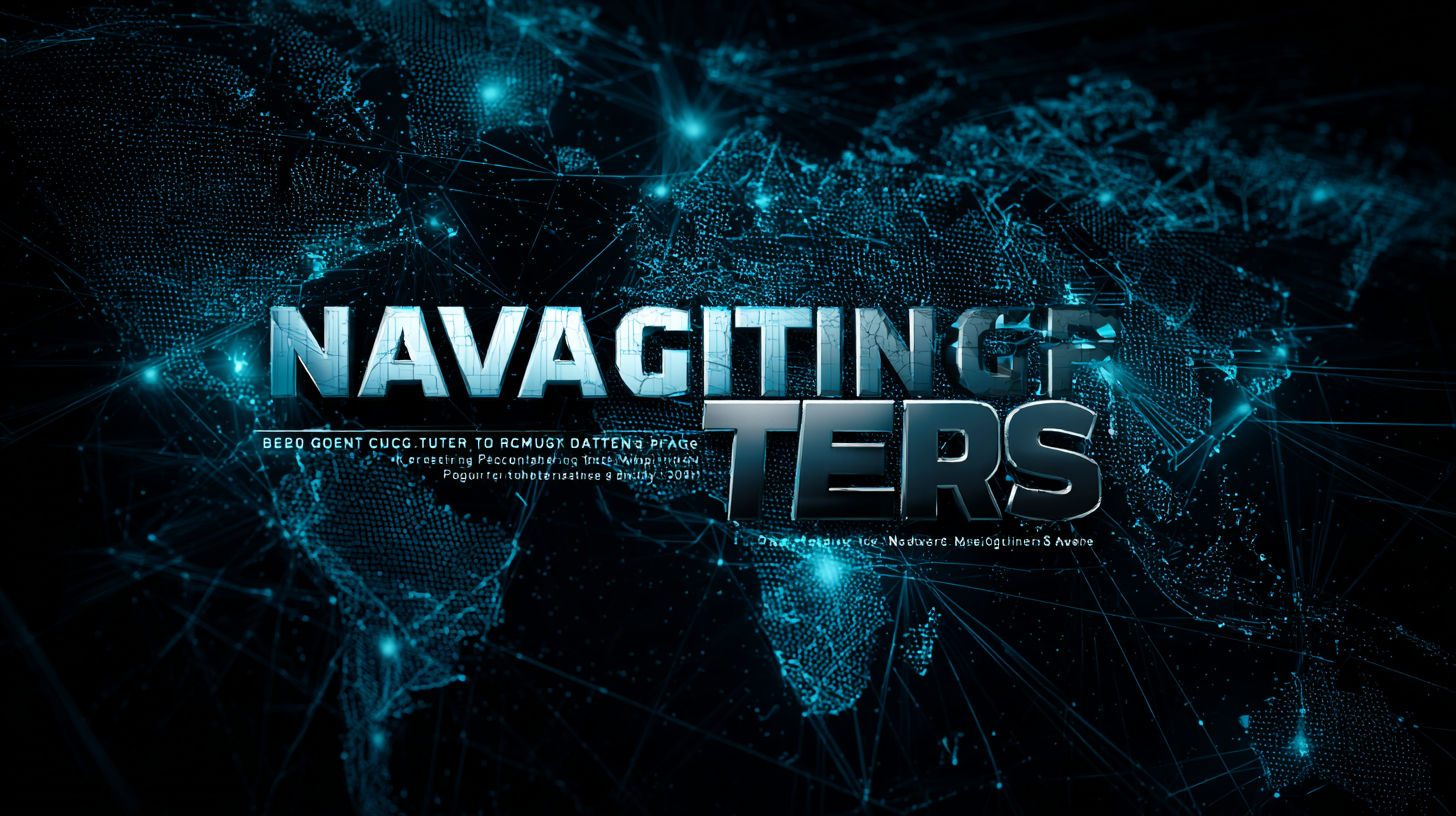- English
- русский
- العربية
- tiếng Việt
- Türkçe
- Deutsch
- 日本語
- 한국어
- ภาษาไทย
- Indonesia
- שפה עברית
- Português
- Español
- Français
- Italiano
- Nederlands
- Polski
- Svenska
- magyar
- Malay
- বাংলা ভাষার
- Dansk
- Suomi
- हिन्दी
- Pilipino
- Gaeilge
- تمل
- český
- ελληνικά
- український
- Javanese
- فارسی
- தமிழ்
- తెలుగు
- नेपाली
- Burmese
- български
- ລາວ
- Latine
- Қазақша
- Euskal
- Azərbaycan
- Slovenský jazyk
- Македонски
- Lietuvos
- Eesti Keel
- Română
- Slovenski
- मराठी
- Srpski језик

Navigating the Future: 2025 Tech Trends for Global Buyers + Essential Checklist for Partnering with Top Manufacturers
As we look towards 2025, the global technology landscape is poised for transformative changes that will shape the way manufacturers operate and collaborate across borders. According to a recent report by McKinsey, investment in digital technologies among manufacturers is expected to exceed $1 trillion by 2025, highlighting a significant shift towards more integrated and efficient production processes. Additionally, the Statista Global Manufacturing Outlook indicates that emerging markets, particularly in Asia, are increasingly becoming pivotal players in the global supply chain, driven by a demand for innovation and quality.

This evolving scenario presents unique opportunities for global buyers, who must navigate a complex array of technological innovations to form strategic partnerships with top manufacturers. In this blog, we will explore the key tech trends that will influence buyers in the coming years and provide an essential checklist for collaborating with reliable manufacturers, all under the ethos of "China manufacturing, shared globally, with quality you can trust."
Emerging Technologies in 2025: Key Innovations Shaping Global Procurement Strategies
As we move toward 2025, several emerging technologies are poised to redefine global procurement strategies. According to a report by McKinsey, 70% of procurement leaders expect to invest in AI and machine learning to streamline processes and enhance decision-making capabilities. These technologies enable organizations to analyze vast amounts of data, resulting in improved forecasting accuracy and supplier risk assessments. By leveraging these innovations, companies can reduce costs and enhance overall efficiency in their supply chains.
Moreover, blockchain technology is transforming the way companies manage their procurement activities. A study from PwC revealed that 77% of executives see blockchain as a crucial tool for improving transparency and traceability in sourcing. As businesses adopt this technology, the ability to track goods from origin to delivery will not only mitigate fraud but also empower buyers to make more informed decisions based on reliable data. The convergence of AI, machine learning, and blockchain will be instrumental in building resilient supply chains that can adapt to the challenges of a rapidly changing market landscape.

Understanding Consumer Behavior: Data-Driven Insights for Effective Tech Adoption
As we navigate the intricacies of technological advancement in 2025, understanding consumer behavior has never been more critical. Data-driven insights reveal not only the preferences of global buyers but also patterns in their tech adoption. The trade promotion management and optimization solution market, valued at $739.77 million in 2024, is poised to grow to $1.46983 billion by 2032, showcasing a compound annual growth rate (CAGR) of 8.96%. This surge highlights the increasing reliance on data analytics to tailor offerings that resonate with evolving consumer expectations.
In the BFSI sector, big data analytics will play a pivotal role in informing strategies related to risk management, operation optimization, and customer relationship management. As trends point towards a more data-centric approach, businesses must adapt to harness insights that facilitate targeted marketing and enhance customer engagement. With the retail industry set to embrace AI-driven solutions and prioritizing user experience while ensuring privacy, the melding of technology with consumer insights is essential for success in the marketplace. Preparing for these shifts is vital for manufacturers aiming to partner with global buyers effectively.
Navigating the Future: 2025 Tech Trends for Global Buyers + Essential Checklist for Partnering with Top Manufacturers - Understanding Consumer Behavior: Data-Driven Insights for Effective Tech Adoption
| Trend | Impact on Buyers | Consumer Behavior Insights | Key Considerations for Partnership | Future Adoption Rate (%) |
|---|---|---|---|---|
| Artificial Intelligence | Enhanced personalization in services | Increased demand for customized experiences | AI expertise and transparency in algorithms | 75% |
| Blockchain Technology | Improved security and traceability | Growing concern for data privacy | Robust security measures and compliance | 60% |
| 5G Technology | Faster connectivity enabling new applications | Demand for seamless digital experiences | Infrastructure readiness and cost management | 80% |
| Internet of Things (IoT) | Integration of smart devices in homes | Preference for smart living solutions | Interoperability and user-friendly design | 70% |
| Augmented Reality (AR) & Virtual Reality (VR) | New ways of engaging with products | Desire for immersive experiences | Content creation and user experience focus | 65% |
Sustainable Manufacturing: Trends from Leading Manufacturers and Consumer Expectations
In recent years, sustainable manufacturing has emerged as a crucial factor in shaping consumer behavior and business practices. According to a report by Deloitte, 83% of consumers believe that companies should actively seek to implement eco-friendly practices. This shift in consumer expectations compels manufacturers to prioritize sustainability not just as a trend but as a strategic imperative. Leading manufacturers are increasingly adopting practices that minimize waste, reduce carbon footprints, and leverage renewable energy sources. For instance, the Global Sustainability Study 2023 indicated that companies implementing sustainable practices could boost their market share by up to 10%.
Furthermore, the rise of circular economy principles is transforming how products are designed and produced. Research from McKinsey highlights that transitioning to circular manufacturing can cut greenhouse gas emissions by up to 45% by 2030. This approach not only meets the demand for sustainable products but also fosters innovation and efficiency in supply chains. As global buyers look to partner with manufacturers, a shared commitment to sustainability will likely become a decisive factor in choosing collaborators, reinforcing the necessity for companies to align their operational strategies with the growing eco-conscious mindset of consumers.
Navigating the Future: 2025 Tech Trends for Global Buyers
This bar chart illustrates the anticipated adoption rates of key technology trends by global buyers by 2025. The data reflects trends in sustainable manufacturing, artificial intelligence, and remote work technology.
Navigating Global Supply Chains: Challenges and Solutions for International Buyers
In today's interconnected world, navigating global supply chains can be both a challenge and an opportunity for international buyers. The complexities of sourcing materials and products from diverse regions introduce potential pitfalls, including fluctuating shipping costs, varying quality standards, and geopolitical uncertainties. As businesses gear up for 2025, it’s essential to adopt a strategic approach to mitigate these risks. Establishing solid relationships with trusted manufacturers and leveraging technology for supply chain visibility can enhance resilience and responsiveness in the face of unexpected disruptions.

Moreover, understanding local market dynamics is critical to ensuring smooth transactions and maintaining product quality. Buyers should not only consider price but also the reliability and ethical standards of suppliers. Engaging in thorough due diligence and fostering open communication with manufacturers can help bridge cultural gaps and align expectations. As technology continues to evolve, utilizing tools such as blockchain for tracking and verifying supply chain processes will become indispensable for buyers looking to enhance transparency and efficiency in their global operations.
Essential Partnership Checklist: Evaluating Manufacturers for Strategic Alignments
In an increasingly interconnected world, selecting the right manufacturing partner is crucial for businesses aiming to stay ahead of the competition. To ensure strategic alignment with potential manufacturers, one must begin with a thorough evaluation process. This involves examining the manufacturer's reputation, assessing their technological capabilities, and understanding their production scalability. By prioritizing these factors, businesses can gauge whether the manufacturer aligns with their mission and long-term goals.
Moreover, an essential aspect of partnership evaluation lies in communication and compatibility. Engaging in open dialogues about expectations, timelines, and quality standards can prevent future misunderstandings. It's also beneficial to inquire about their past collaborations and customer testimonials, which can provide insight into their reliability and service quality.
Ultimately, a well-rounded checklist that considers technical expertise, operational efficiency, and relational dynamics will facilitate more informed decisions, setting the stage for successful partnerships that can drive innovation and growth in the rapidly evolving tech landscape of 2025 and beyond.
